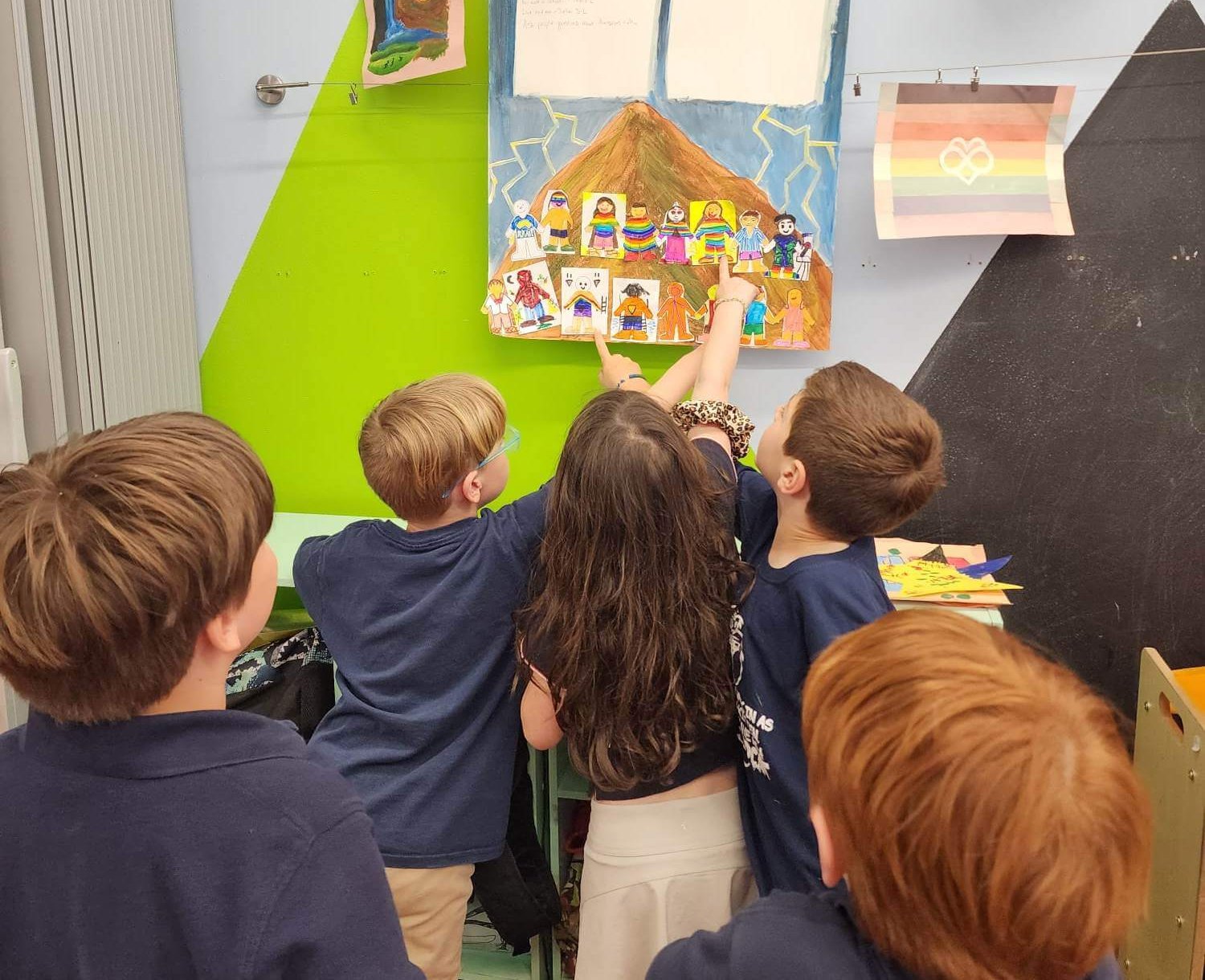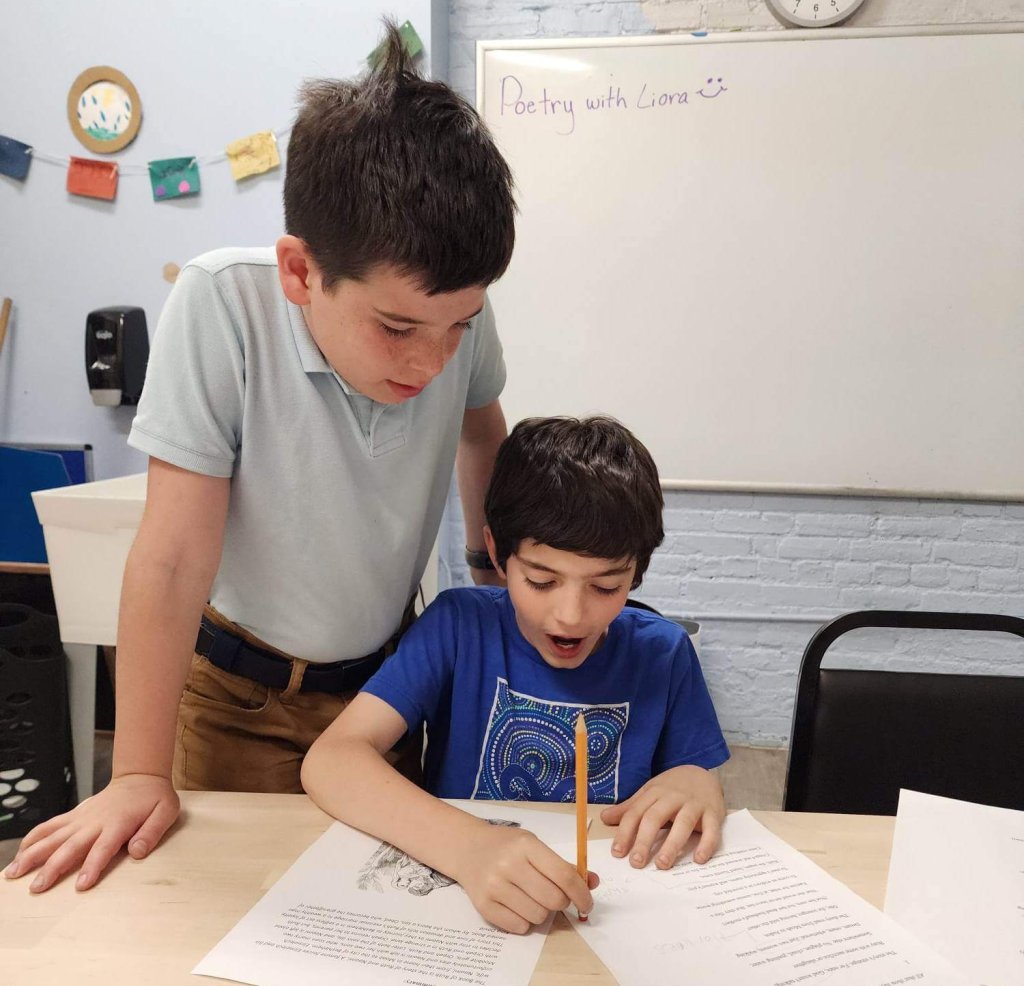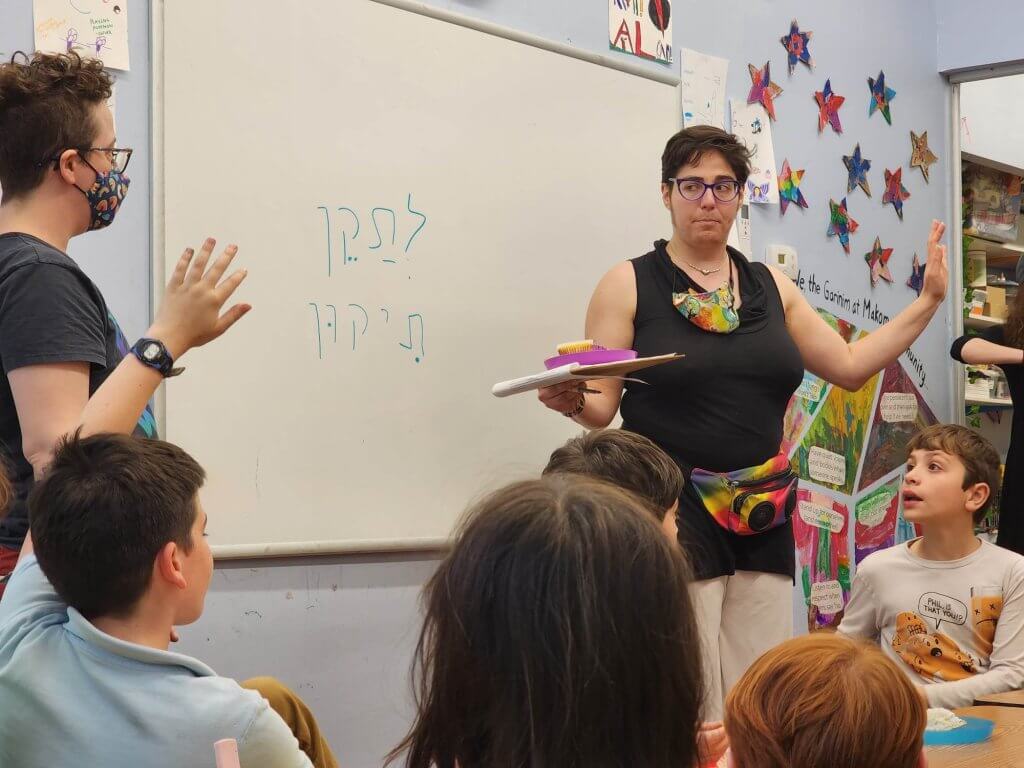
I chose to structure my Shavuot tikkun (text study session) through the lens of poetry because I love how poetry challenges the way we perceive things. Take Dickinson for example. Emily Dickinson wrote that “Hope is the thing with feathers”. I know that I for one didn’t think of hope as a bird, as an emotion that can take flight, that lives and sings within you before Dickinson told me so. That is why I chose to explore the Book of Ruth through poetry, to open our eyes to new considerations of community and God. Other tikkuns that we facilitated explored text through music, art and games. One group made a gorgeous collaborative depiction of our community waiting for the Torah at the foot of Har Sinai. Another group considered what community means by analyzing a song.
Needless to say, I understand that poetry is not everyone’s cup of tea. My tikkun only drew a few kids but I do think that the small size of our study group aided in the depth of our discussion. I began by reviewing the Book of Ruth which is read in association with Shavuot because of its themes of loyalty, love and selflessness. Some might argue that these are themes that are also reflected in the story of Bnei Yisrael receiving the Torah at Har Sinai, but we’ll get into that later.
Then we read the poem:
No Angel
by Catherine Tufariello
All that thou sayest unto me I will do. (Ruth 3:5)
I.
The story’s strange. For once, God wasn’t talking,
Busy with some sacrifice or slaughter
Somewhere else. No plague, cloud, gushing water,
Dream, omen, whirlwind. Just two women, walking
The dusty road from Moab to Judea,
One, the younger, having told the other
(Not her own, but her dead husband’s mother)
That she would never leave her. But they flee a
Famine for what, at first, seems something worse:
To come as widows to a crowded city,
To men’s appraising stares, and women’s pity.
Ruth, the pagan, heard Naomi curse,
Cringed and scanned the sky. No fire or stone
Came crashing downward. They were on their own.
Together with my team of new poetry scholars, we came to three conclusions.
- God contains a duality. God is capable of being present and active in our lives as well as distant and observant, much like in the Book of Esther.
- In the Book of Ruth (and the Book of Esther) God takes a back seat and observes the events that take place. It’s entirely possible that God takes action in these stories in subtle ways. However, their presence is much more apparent is countless of other Torah stories, including the story of Bnei Yisrael receiving the Torah. When we noticed this, we asked ourselves: why does God pick and choose to act or not act in this way? What determines whether God will intervene?
- The Book of Ruth prompts many questions about gender and traditional heteronormativity.
- We were prompted to ask: Why is God consistently characterized as male? This poem is true to that, but I wanted to understand why this poet in question made that choice. I think that this gendered portrayal of God, also plays a role in God’s dichotomy.
- Community can look many different ways. Sometimes it’s a large group of people. Sometimes, it’s just two and that’s enough.
- Through our text study discussion in this last unit, we explored what kehillah (community) means and how one builds something as a community. However, we hardly considered how communities can vary. Ruth and Naomi’s community was small, but it was everything they need it to be until other people were ready to build community with them.

I was very intrigued by our first observation, as I often find that I approach text study with the intention of understanding God on a deeper level. While I have encountered the concept of God’s duality before, I hadn’t yet allowed myself to sit with this idea. Thanks to the kiddos that joined my tikkun, my concept of God and community have expanded. I’m grateful that these kids took a chance on me, and some poetry, and that it led to such eye-opening realizations. Below, I’ve written a poem that reflects some of my thoughts on this idea, and I hope that as you read it- it prompts some questions or feelings within you. If nothing else, I urge you to consider: How would you describe God’s duality and what necessitates it?
Oil and Water
by Liora Hassan
God is a Gemini
a snake with two heads
a sunshower on a winter day
God wakes at twilight
ties Their shoes together
and walks backwards
God is both in front
and behind you at all times
God whines
dances in a storm of their own making
meditates with a locally crafted sound bowl
God loves to cook complicated recipes
with home-grown produce
and eat savoringly
till the last bite
God loves putting on a show
almost as much as watching it
God will hold your hand
if you ask,
if you don’t,
if you question it,
if you forget
God doesn’t forget
because They can’t
because our faces are etched
on the backs of Their hands
God plays games all day
has all the cheat codes
but won’t give them away
God is a sore loser
with a bruised ego
but gives the best hugs
and even when They can’t be found
I promise you
They’re in the walls.

